
Linux has many command line tools that can perform a variety of tasks. However, over time, some tools become obsolete and are replaced by other newer command line tools.
In this guide, we’ll focus on 6 deprecated Linux commands and the replacement tools you should use. Most of these commands are network tools provided by the net-tools package, which has not been actively maintained for a long time now.
1.ifconfig command
Linux ifconfig command is a network command used to view and modify the settings of a network interface. It displays network interface details such as interface name, IP address settings, MTU and hardware address, etc. It can also be used to shut down or bring up an interface.
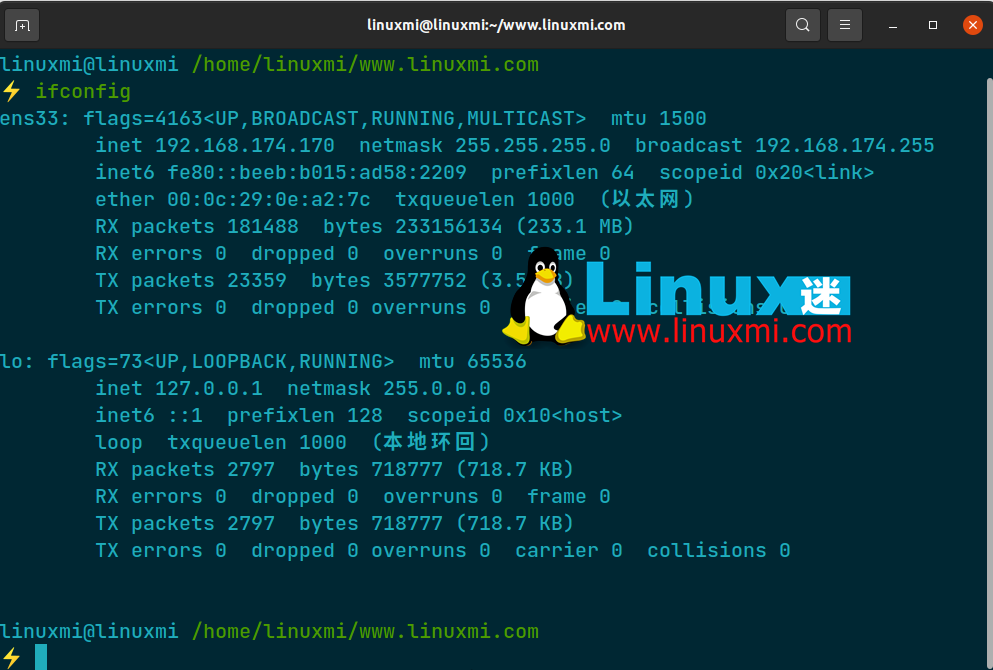
The ifconfig command has been replaced by the ip command, which takes the following form.
linuxmi@linuxmi /home/linuxmi/www.linuxmi.com ⚡ ip address
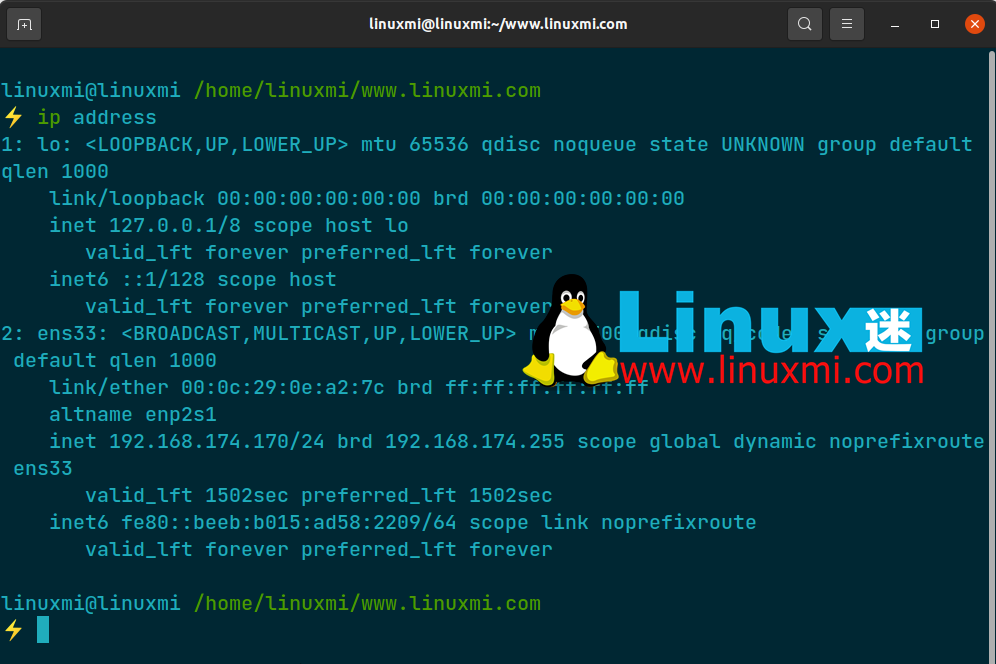
or:
linuxmi@linuxmi /home/linuxmi/www.linuxmi.com ⚡ ip addr
or
linuxmi@linuxmi /home/linuxmi/www.linuxmi.com ⚡ ip a
“
or
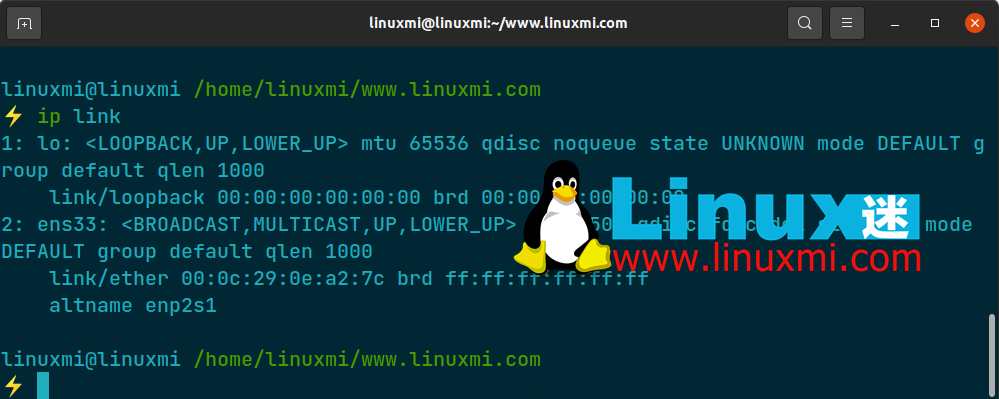
Checking IP address in Linux
Linux netstat command is a command line tool used to monitor various network statistics. It monitors active network connections, incoming and outgoing connections, routing tables, and listening ports as well as the PIDs of the services associated with the listening ports.
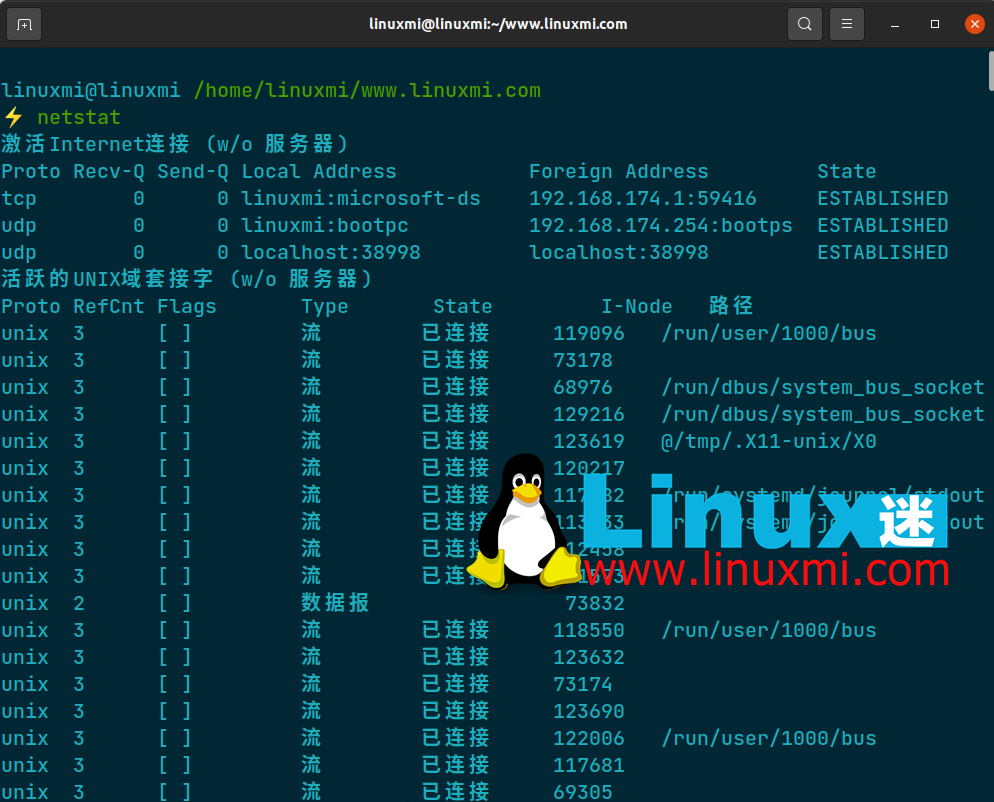
This command has been replaced by the ss command which performs similar tasks.
linuxmi@linuxmi /home/linuxmi/www.linuxmi.com ⚡ ss -t State Recv-Q Send-Q Local Address:Port Peer Address:Port Process ESTAB 0 0 192.168.174.170:microsoft-ds 192.168.174.1:59416
linuxmi@linuxmi /home/linuxmi/www.linuxmi.com ⚡ ss -l
“
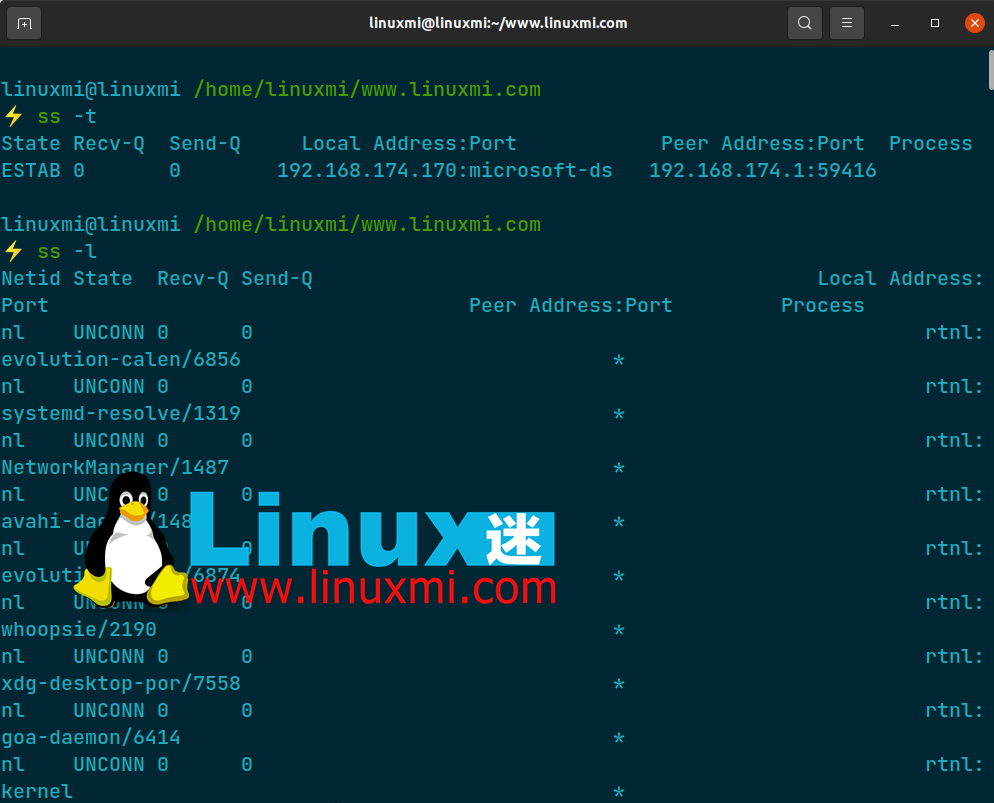
[You may also like: 12 ss command examples for monitoring network connections] https://www.linuxmi.com/linux-ss-command.html
The scp command, short for secure copy, has long been used to securely transfer files from one Linux system to another. However, this scp command has been deprecated by RHEL 9 due to numerous security challenges. In fact, modern Red Hat distributions no longer ship with scp.
Related: How to pass password to scp command in Linux https://www.linuxmi.com/linux-password-scp.html
scp has been superseded by alternatives such as rsync and sftp.
linuxmi@linuxmi /home/linuxmi/www.linuxmi.com ⚡ sftp linuxmi@192.168.174.170

or
linuxmi@linuxmi /home/linuxmi/www.linuxmi.com ⚡ rsync -zvh linuxmi.tar.xz /tmp/backups/
“
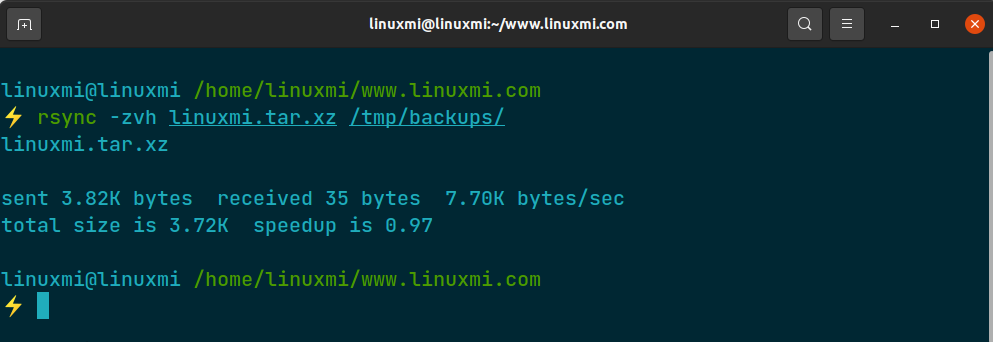
Linux file transfer command
route The route command line tool allows you to view and change the routing table of your Linux system.
This tool has been replaced by the ip route command.
linuxmi@linuxmi /home/linuxmi/www.linuxmi.com ⚡ ip route show
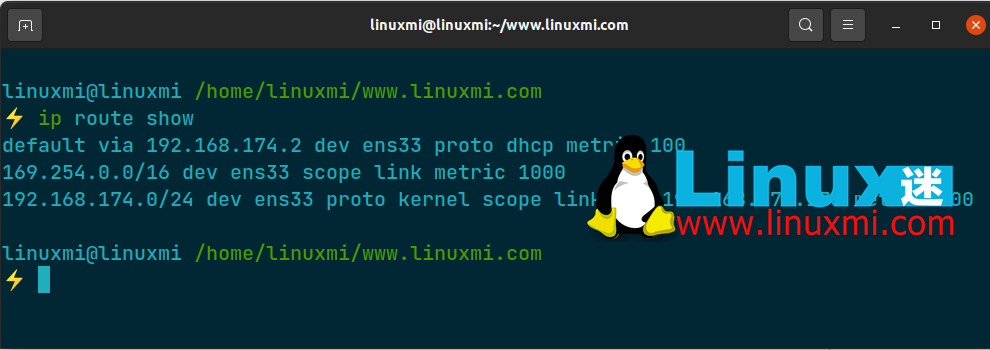
Check Linux routing table
egrep and fgrep commands belong to the grep function series.
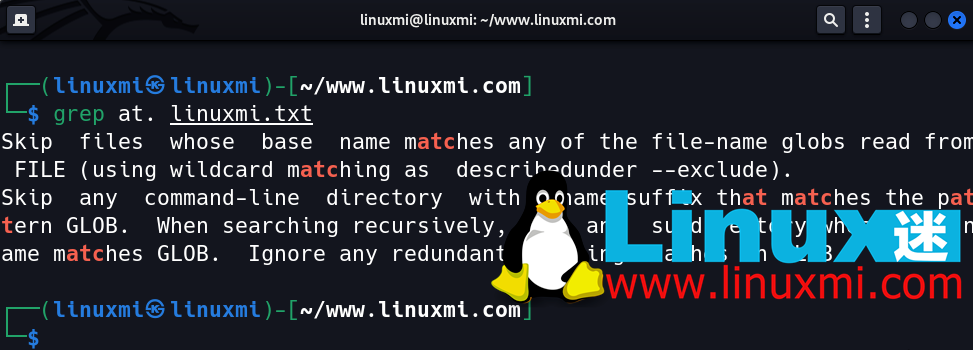
The following is a brief description of the function of each command.
egrep command has been replaced by grep -E, and fgrep has been replaced by grep -F.
Related Links:
Nearly all network command line tools in the net-tools package have been deprecated or replaced by new tools. arp, route, iptunnel and nameif have been deprecated in favor of better tools.
The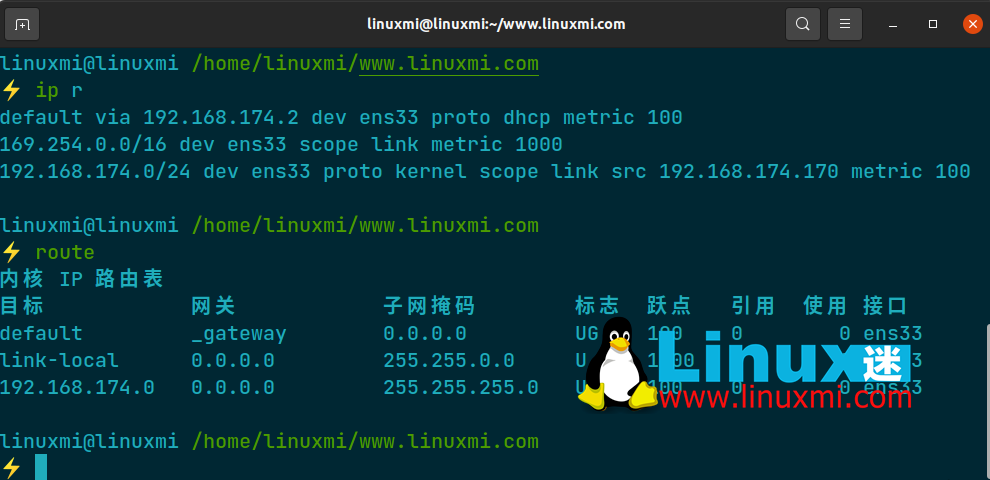
command has been replaced as follows.
This is a summary of some commands that have been deprecated and replaced by modern replacements. It's worth pointing out that although some of these commands have been deprecated or considered obsolete, they are still valid when executed.
Deprecated network tools (such as ifconfig, route, and netstat) will still provide the required information when executed. Ultimately, the decision of which command line tool to use is entirely up to the user.
The above is the detailed content of 6 Deprecated Linux Commands and Alternative Tools You Should Use. For more information, please follow other related articles on the PHP Chinese website!




